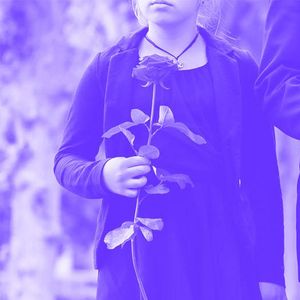Australian journalists explain how the MEAA Code of Ethics shapes their actions.
Understanding power and consent are essential for Australian journalists to ensure they report the news without inflicting additional harm in the process, according to a panel of prominent investigative Australian reporters.
Ben Schneiders, an investigative journalist at The Age newspaper, said that to address ethical and privacy dilemmas in the news industry it is crucial to remember that "you are dealing with people and you need to show them as much respect as you can".
"You can do small things that empower people. The more vulnerable someone is, the more control I will give them over what they say," Schneiders said. It is helpful for journalists to be upfront and honest with subjects about the information that they have gathered as it is often the "worst day of their life to get these questions even if they've done the wrong thing."
The panel, which included Schneiders, ABC investigative reporter Caro Meldrum-Hanna and Brisbane Courier-Mail chief crime reporter Kate Kyriacou, shared their experiences with ethical and moral reporting for the Media, Entertainment and Arts Alliance webinar "Handle with care: reporting with respect for privacy, grief and trauma".
'Remember that this is just one day's work and you have to live with what you do forever.'
Questions around ethical journalism practices, particularly in how reporters obtain information or interrogate sources were at the centre of the discussion on Thursday. Schneiders said he is particularly conscious of how he questions subjects when they have experienced significant trauma because being misrepresented or quoted out of context could further "reinforce their trauma".
Cait McMahon, founding managing director of the Asia Pacific Dart Centre and a registered psychologist, said that it is crucial to remember that traumatised victims and survivors, including family of perpetrators, have been "rendered powerless".
"It can help deepen your journalism if you understand what trauma does to people and their communities," she said. Journalists need to be cognisant of how trauma impacts not just victims but also audiences and journalists themselves. She said both newsrooms and individual journalists needed to understand the impacts of trauma to provide adequate support to journalists who were struggling.
Kyriacou said that social media has had a significant impact on how journalists navigate contacting vulnerable sources. Gone are the days of "death knock" where a young reporter is sent out to knock on the door of the family of someone who has died. Today, journalists are more likely to send a quick message via Facebook to potential sources. In cases where sources are suffering from grief or trauma, "people sometimes appreciate a message via Facebook because it's less intrusive", Kyriacou said. "You're not there in their face, putting them on the spot."
Meldrum-Hanna also highlighted the importance of giving traumatised subjects space and time to consider whether they want to contribute. "It is all about consent and how you obtain it," she said.
To establish transparent and collaborative communication, Meldrum-Hanna said she always asks participants "what do you want and what do you not want?"
In her recent investigation "Exposed: The Ghost Train Fire", into the 1979 fire at Luna Park, Sydney, she "flipped the script" and allowed the families of the victims and other witnesses to access the material before publication.
Due to the prolonged nature of the investigation, Meldrum-Hanna acknowledged the potential re-traumatisation of the families that could occur. To mitigate serious harm, her team "set up counselling sessions for the participant's pre-broadcast, during production and post-broadcast".
Despite improvements in ethical journalism practice, Schneiders, Kyriacou and Meldrum-Hanna believe that there are barriers that make it difficult for the Australian news industry to be a wholly ethical space.
Kyriacou said that the immediacy of online news deadlines leaves journalists questioning whether they made the correct moral decisions in specific cases. She said communication with newsroom managers is vital as they are "completely removed from the trauma you've seen".
Meldrum-Hanna, however, said that she sees journalists themselves as the top barrier to ethical practice as journalists need to understand the MEAA Code of Ethics, their own moral compass and the law.
For Schneiders, the biggest barrier for ethical news practice, particularly for young journalists, is the capacity to "say no and not fear repercussions".
He said it is important for journalists to refuse to do tasks that they believe are unethical and to "remember that this is just one day's work and you have to live with what you do forever".
"You need to respect people's grief," Schneiders said, "this is the most traumatic moment of their life."
Jessica has completed a Bachelor of Media (Communication and Journalism) and International Studies double degree. She is passionate about politics and human rights, with a particular interest in understanding gender inequality.
